Primary
Primary school
Our primary school offers exciting, ambitious and bilingual programmes for all children with a natural curiosity. It prepares them for the Collège years (pre-gymnasium track for all) where bilingualism will be completed and general education completed. From primary school onwards, we have one teacher per subject and all the language teachers are native speakers.
The beginning of primary school is devoted to consolidating skills in reading, writing, maths and English. Through individual monitoring, we ensure that the children have established the basic concepts and skills that will underpin their success.
Lots of reading in both languages develops imagination and vocabulary; bilingual science classes satisfy children’s natural curiosity; art and music classes and three hours of sport a week promise a healthy mind in a healthy body.
Ski and sailing camps, as well as sports days, consolidate team spirit and forge lasting memories.
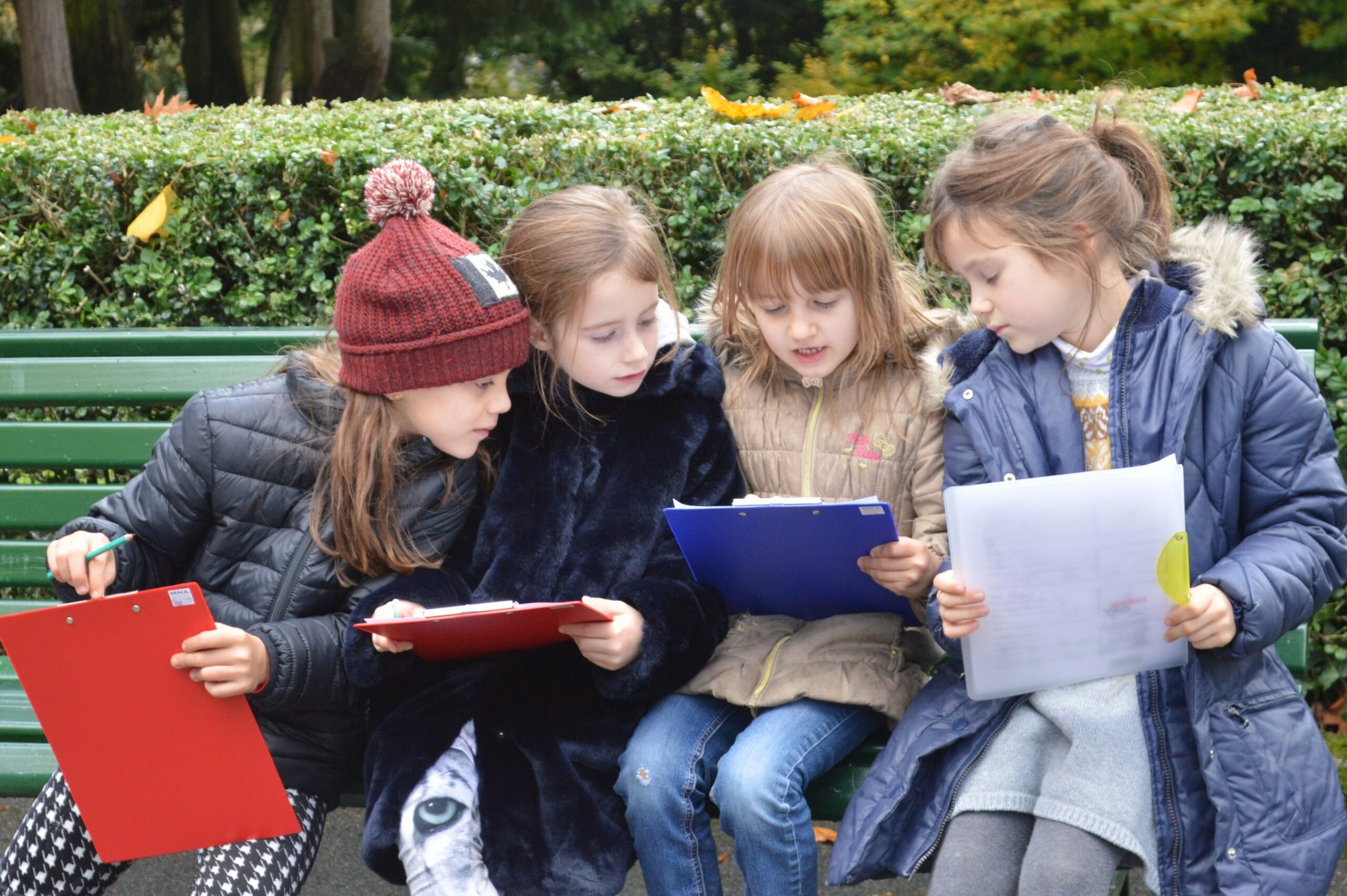
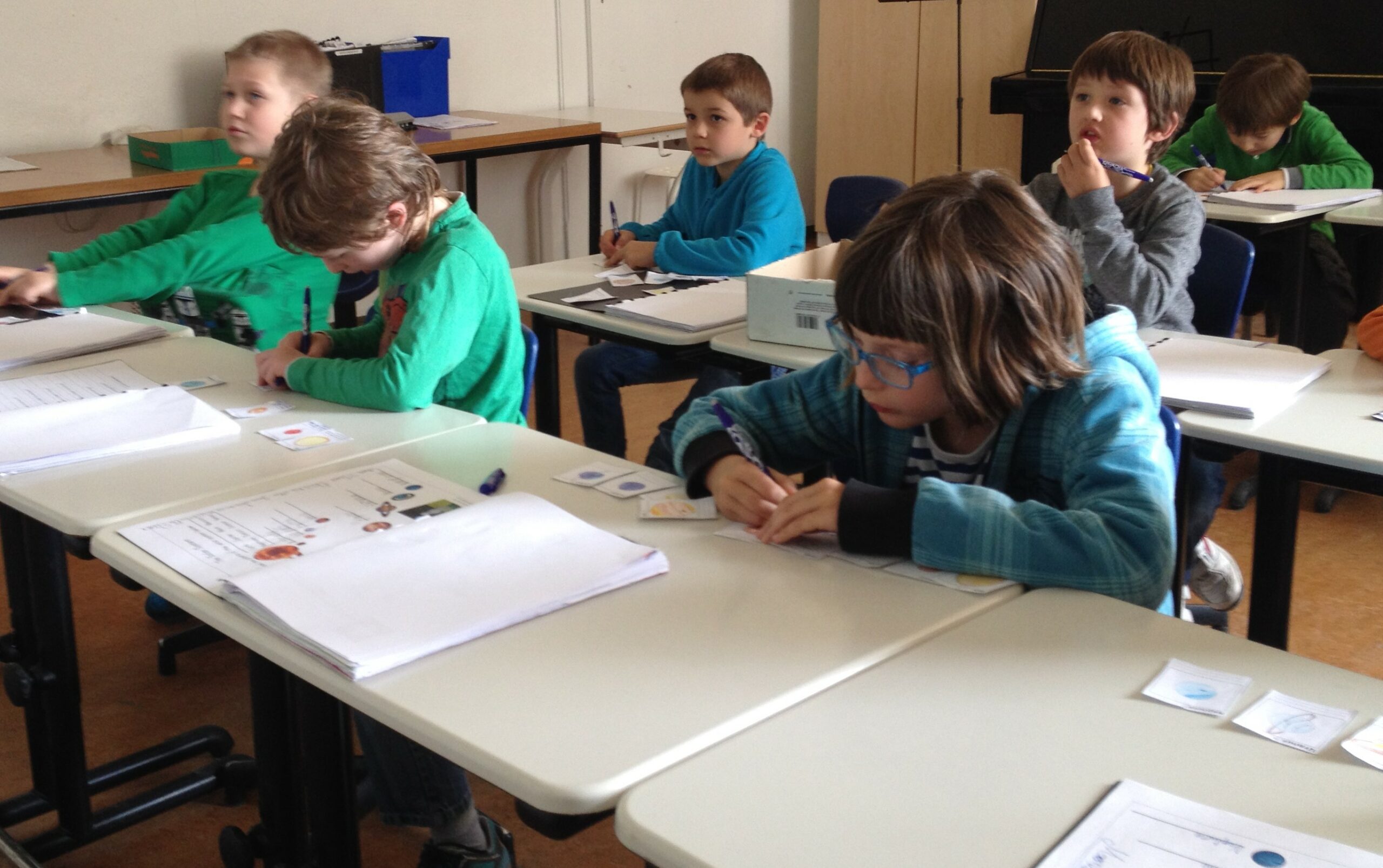
Homework & Assessment
EBSR provides individualised teaching in the core subjects and there are no formal grades in primary school. However, progress in skills is recorded in the pupil’s file, and successes in small tasks are appreciated and progress recorded.
In French and English, there are dictations or short vocabulary tests, and these are assessed, as are short reading quizzes or poems. Everything is listed in the Cahier de Textes Online. In mathematics (Singapore curriculum), the children take a summary assessment when they have reached the end of a chapter; if they fail to do so, they have to repeat the concepts they have misunderstood. Children should also know their multiplication tables and revise them at home.
At Christmas, Easter and at the end of the year, parents receive a full assessment of their child, setting out point by point where they are in the curriculum and whether their behaviour is satisfactory. Interviews with teachers are offered in January; of course, if there are any concerns, the school will contact the family as soon as necessary.
Festivities
There are many festivities throughout the year, the first of which is Halloween, when children dress up in costumes, hunt for sweets and roast marschmellows.
At Christmas, we prepare a lovely present for the parents, and everyone meets up at the Cazard for the choir followed by a shared tea.
At Easter, the grown-ups hide (chocolate) eggs for the whole school, and some are still found the following year…
A nice present for Mother’s Day and a nice card for Father’s Day are a great way to say thank you to your parents.
At the end of the year, a magnificent barbecue in the garden, followed by our famous theatrical performance, allows the whole family to get together and admire the children’s progress.
Finally, on the last Friday of the sailing camp, we traditionally share salads with cream and watermelons before wishing each other a wonderful holiday!
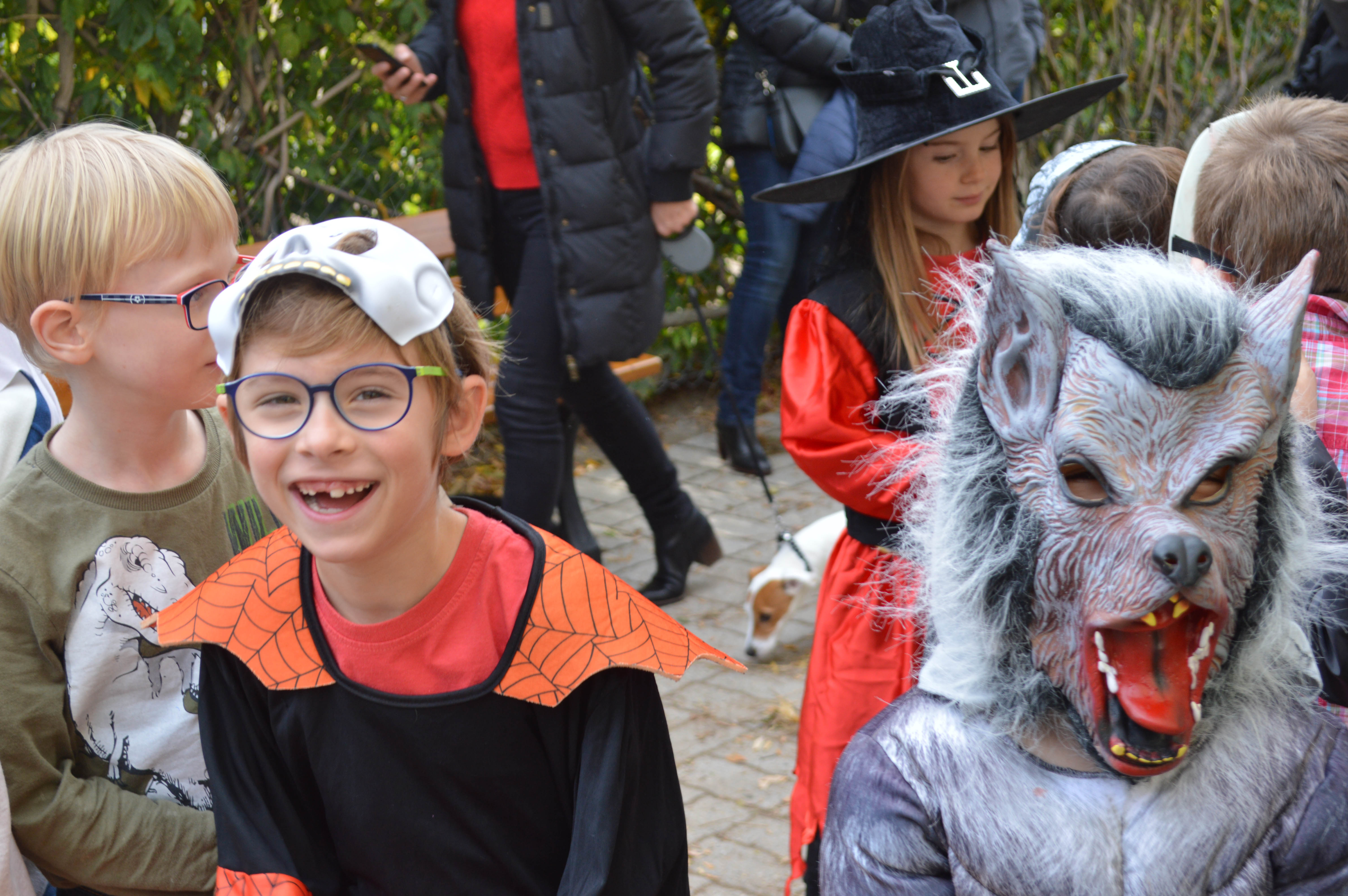
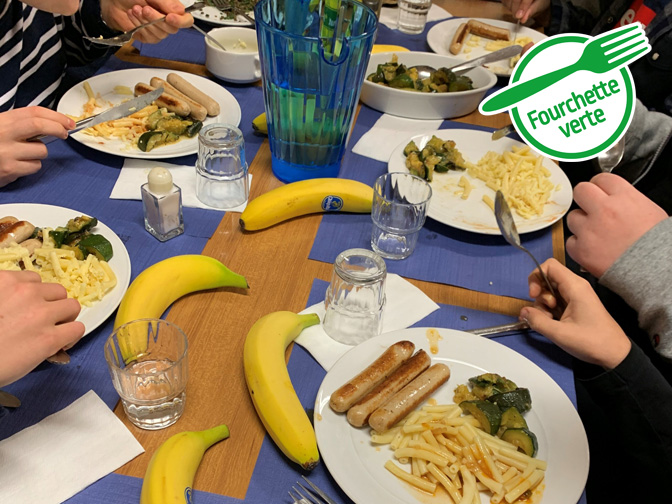
Meals & snacks
We are fortunate to have a French chef who prepares the meals on site and who listens to the children. The “fourchette verte” label guarantees the quality and balance of our meals.
Each meal is prepared with care and includes a salad or raw vegetables as a starter, a starchy food, vegetables and a little protein as a main course, and fruit, dairy products or a small piece of cake for dessert. Fish is served once a week and Vegetarian Monday gives the children the opportunity to discover alternative tastes.
The school also provides snacks for breaks, to avoid food competition. During the school day, the children have one pastry and one piece of cut fruit; those who stay for activities receive a simple snack of bread, chocolate, cheese or ham, and cut fruit.
The kitchen takes care to cater for children with allergies or special needs. Bon appétit!
English
English is taught in Immersion or Native Level depending on the student’s situation. The native programmes follow the British progressions with more literature. Normally, students join the native level after three years of immersion but each situation is evaluated individually. To make a smooth transition to the native level, a child must be able to read fluently first in French, then in English, and have a sufficient level of oral expression.
Pupils study grammar progressively and develop their vocabulary. They read classic English and American children’s books, progressively more ambitious – from Winnie the Poo to Alice in Wonderland. They learn a poem every 15 days (alternating with French).
Their oral expression is supervised to ensure a native accent and phrasing where appropriate, by learning poetry and reading aloud.
They learn to write increasingly long texts with correct spelling.
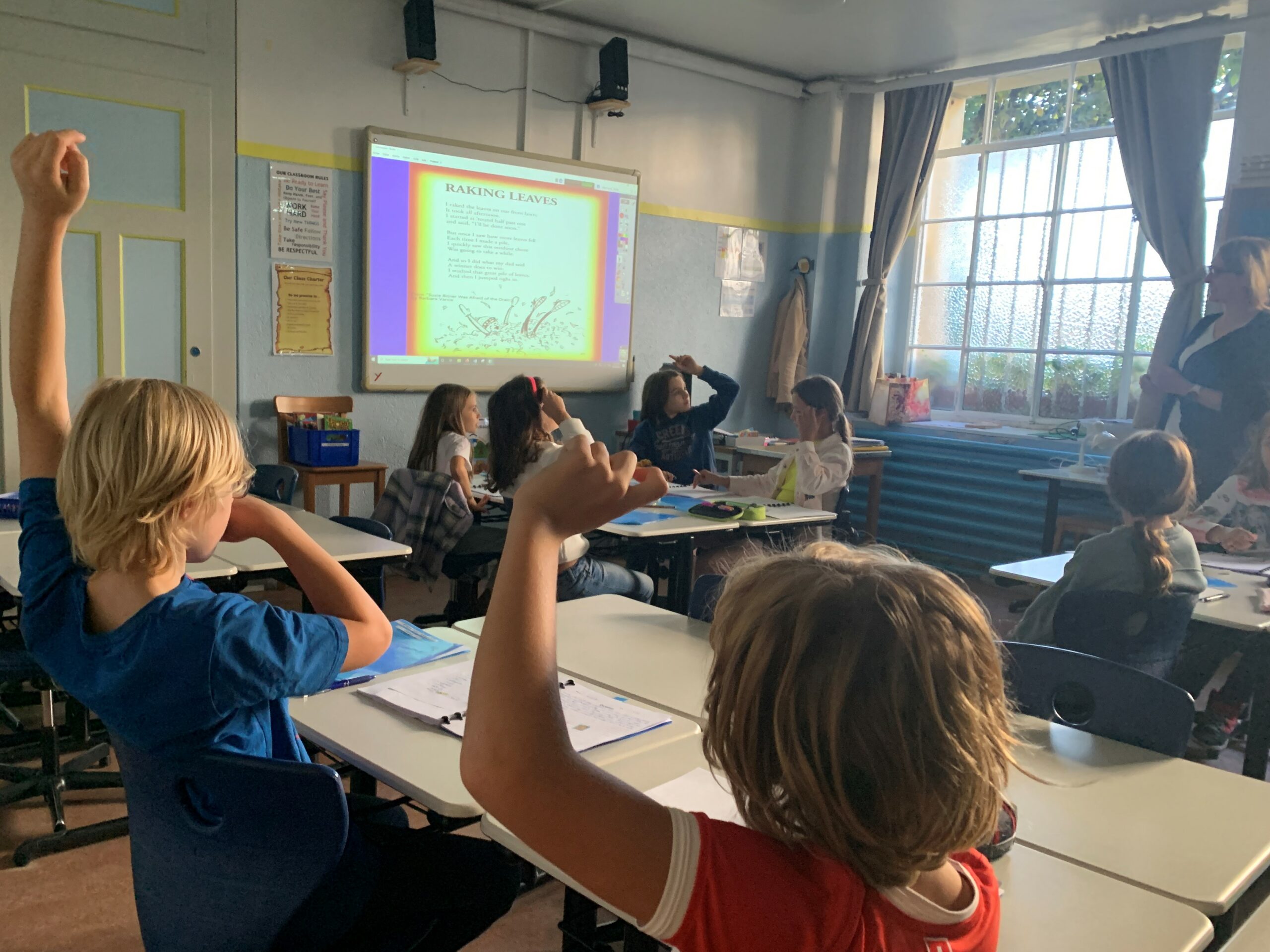
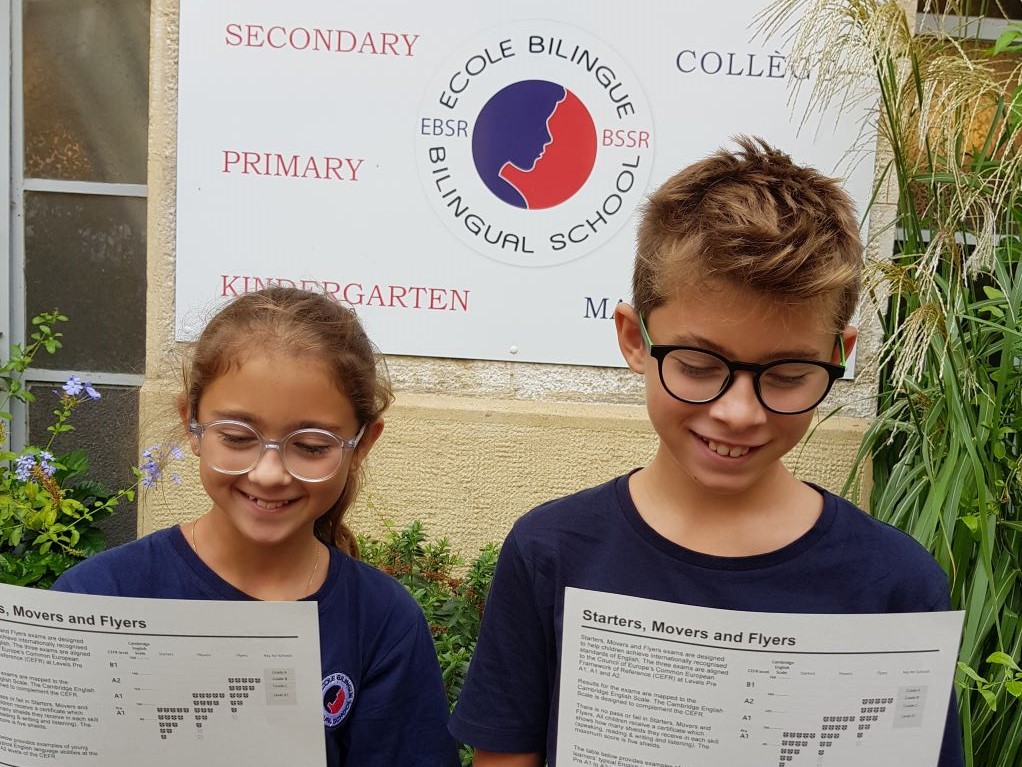
Cambridge exams
Every two years, our students take the Cambridge exams, which are organised by the official agency within the framework of our school. Oral and written expression are on the menu at three levels: Starters, Movers and Flyers.
This is an opportunity for the children to see how an exam is conducted, to have their good level of English confirmed and to receive a nice diploma.
French
Native French follows the French curriculum, but at an earlier age – children master the basics of reading at the start of 1P (=3H, CP) and begin grammar and spelling.
The teaching is largely individualised for technical skills – short dictations are made to measure in the first year, reading is adapted and learning is set for each pupil.
We offer more in-depth study, particularly in the study of language; grammar, conjugation and spelling are studied in a rigorous and classical way, in line with Latin and German grammar.
The literary programme is broad and the classics are given pride of place; in 1P the pupils go through all the classic fairy tales, and also start on the fables of La Fontaine; thereafter, the programme becomes more literary. Children learn a poem every 15 days.
French as a Second Language is also offered. Pupils normally join the native level after a maximum of three years.
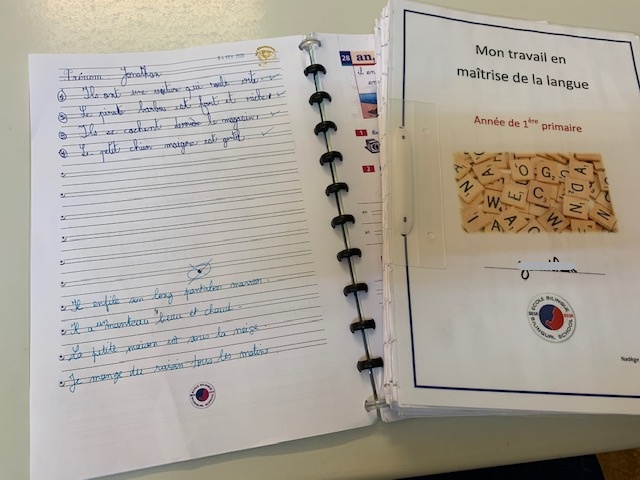
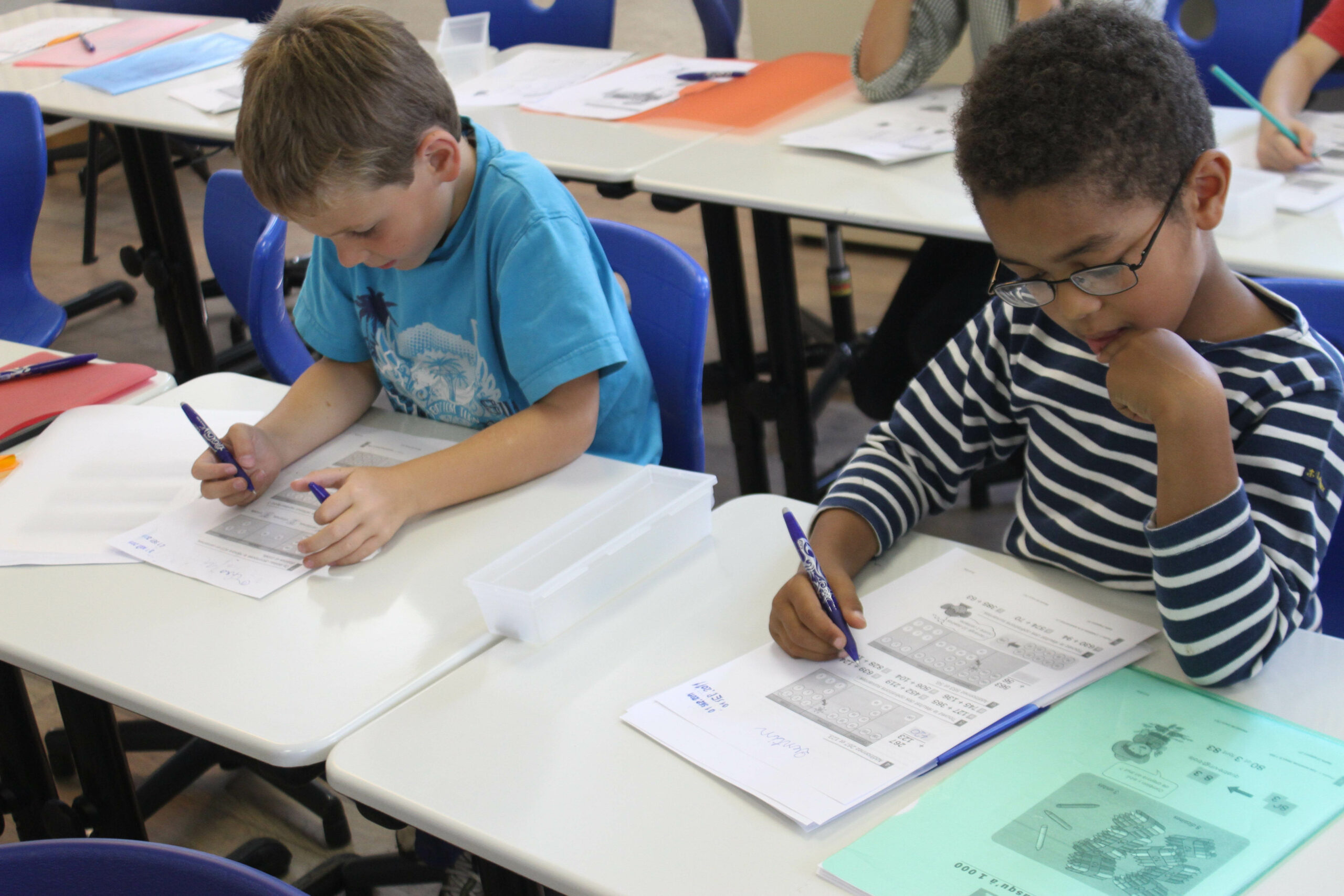
Maths
Maths is the subject in which individualisation is most obviously necessary, and there are no group maths classes at EBSR, either in primary or secondary school. We follow the Singapore curriculum, in French or English, for all arithmetic; but for geometry we have a French curriculum. The Singapore programme is remarkable for its exceptional pedagogical quality, which has been tested and validated throughout the world; and it is particularly well suited to individualisation, because everything is explained in the book by children to children.
Each pupil’s workbook is corrected and prepared for them; when they enter the classroom, they take it from their folder and get to work. If they need help, they simply ask the teacher. Sometimes work on the tablet or computer is offered as support. When the student has finished a chapter, there is a short validation test. Students with difficulties are always supported, and fast learners can progress as quickly as they want. If they are really interested, we prepare them for the Euler Course.
German
German is taught from 3P (= 5Harmos), at the same time as Latin. Classes are taught by a German-speaking teacher, and German is spoken in class. Right from the start, the emphasis is on correct pronunciation, and grammar and vocabulary are on the syllabus straight away.
We have brought the old Wir Sprechen Deutsch up to date and adapted it for the children; this remarkable textbook provides stable and effective progress in German, with an emphasis on oral expression and pronunciation that suits our needs exactly.
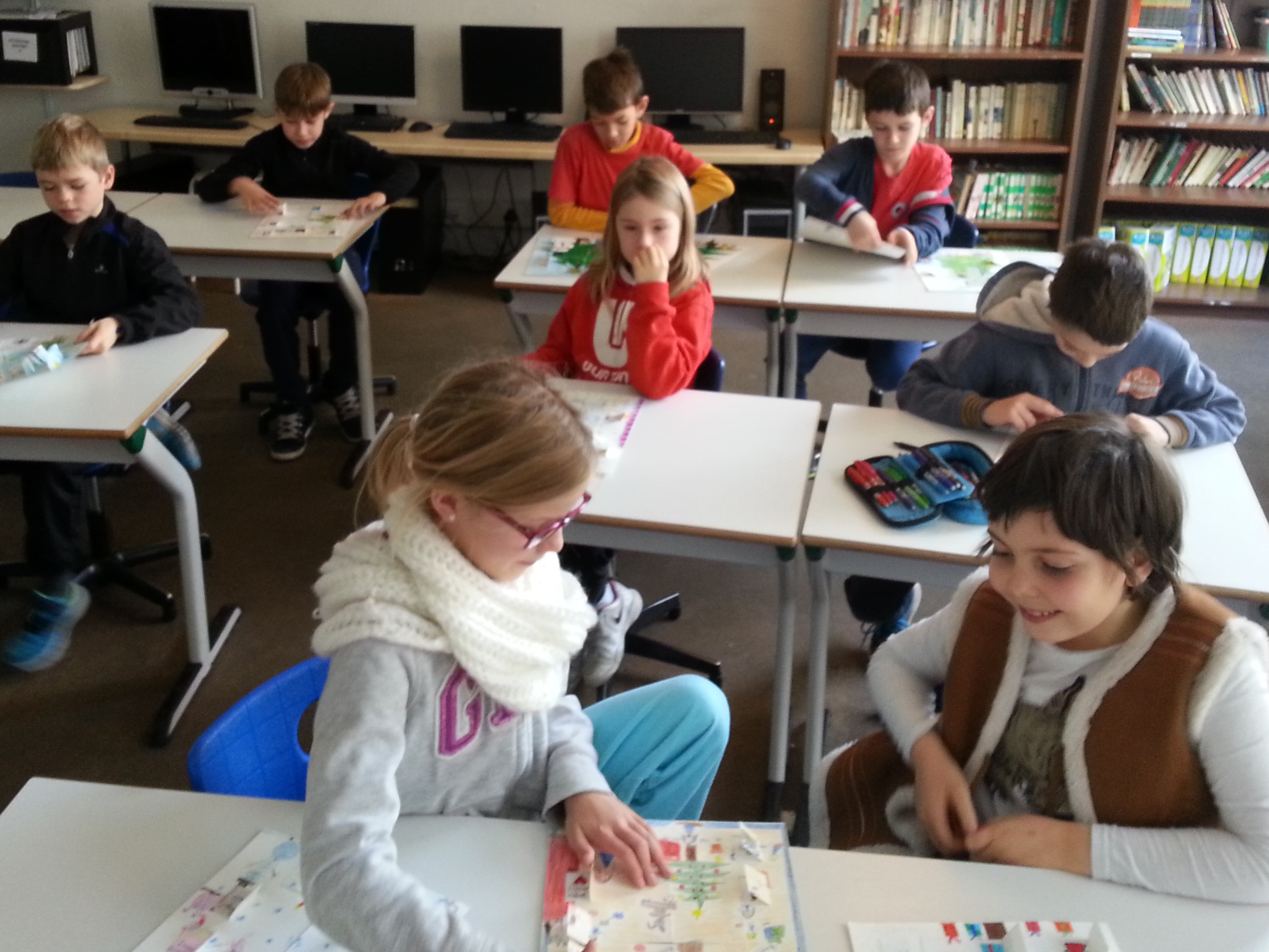
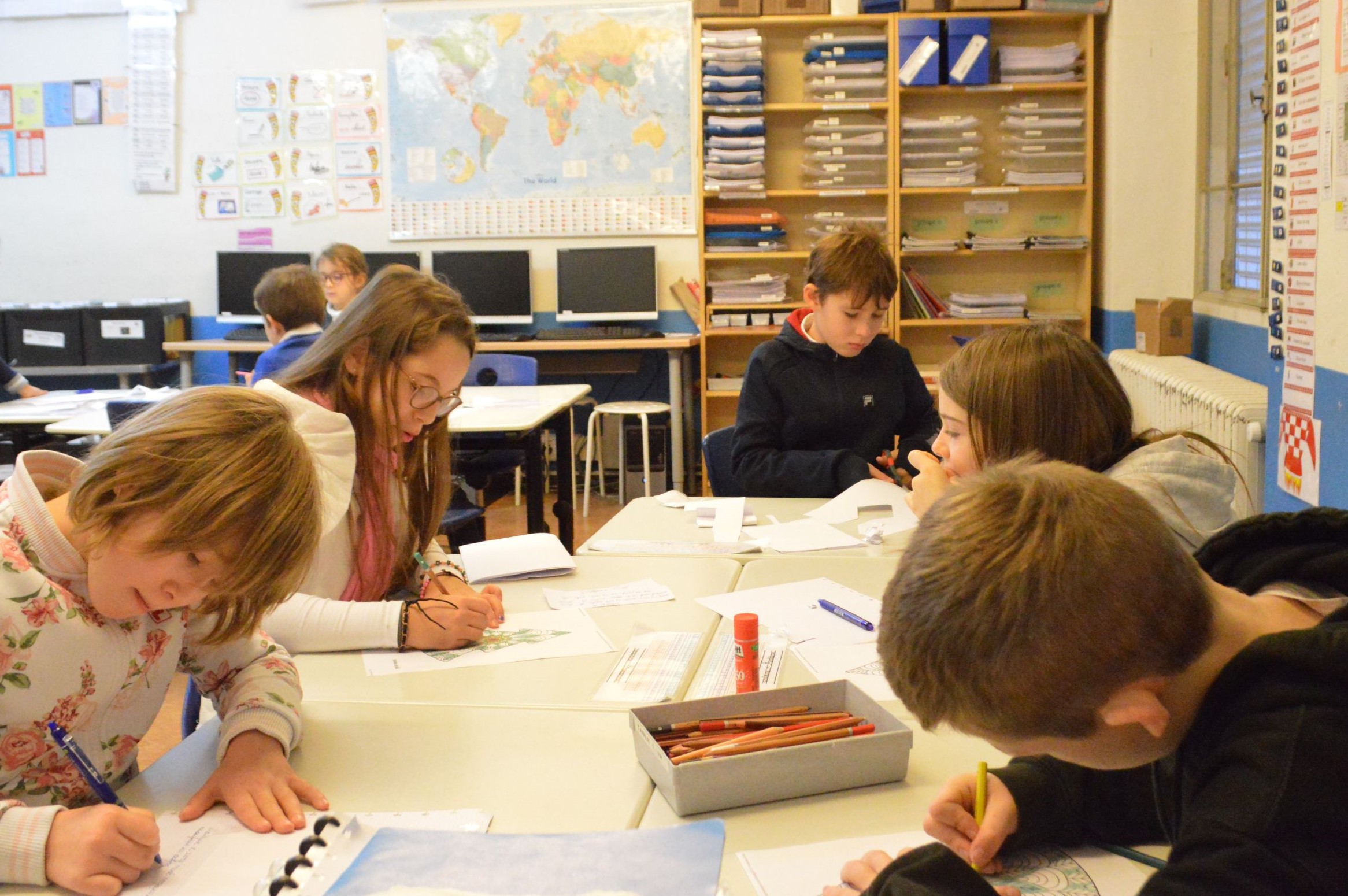
Latin
Latin is taught first in 3P as a short workshop, starting at the same time as German. This is an opportunity to explain the nature of cases and the existence of the neuter. In 4P and 5P, they will progress with one hour a week.
Our Latin method, developed by Hanz Orberg, works intuitively and teaches Latin in Latin. Pupils and teachers alike appreciate its ease of use: the first sentence of the book is “Roma in Italia est”. That gives everyone confidence in their ability to understand the language of the Romans! The programme will continue until the middle of Collège, and those who wish to do so can continue until they enter Gymnase.
Science
Our science programme is a source of pride for the teachers and joy for the children. Two afternoons a week, in three-week blocks, the various natural and human sciences are covered through experiments, discoveries and explorations, often supplemented by outings.
The level is especially advanced and allows pupils, in a fun and informal way, to begin to really understand how the universe works, from atoms and molecules to ecosystems, from anatomy to the theory of evolution, from geography to economics, via history and physics with Lego workshops. All the points on the syllabus are reviewed each year, going a little deeper each time. It’s by developing their knowledge in small steps, by repeating but varying, that we get a real understanding of things. Without grades or tests, just for the pleasure of understanding…
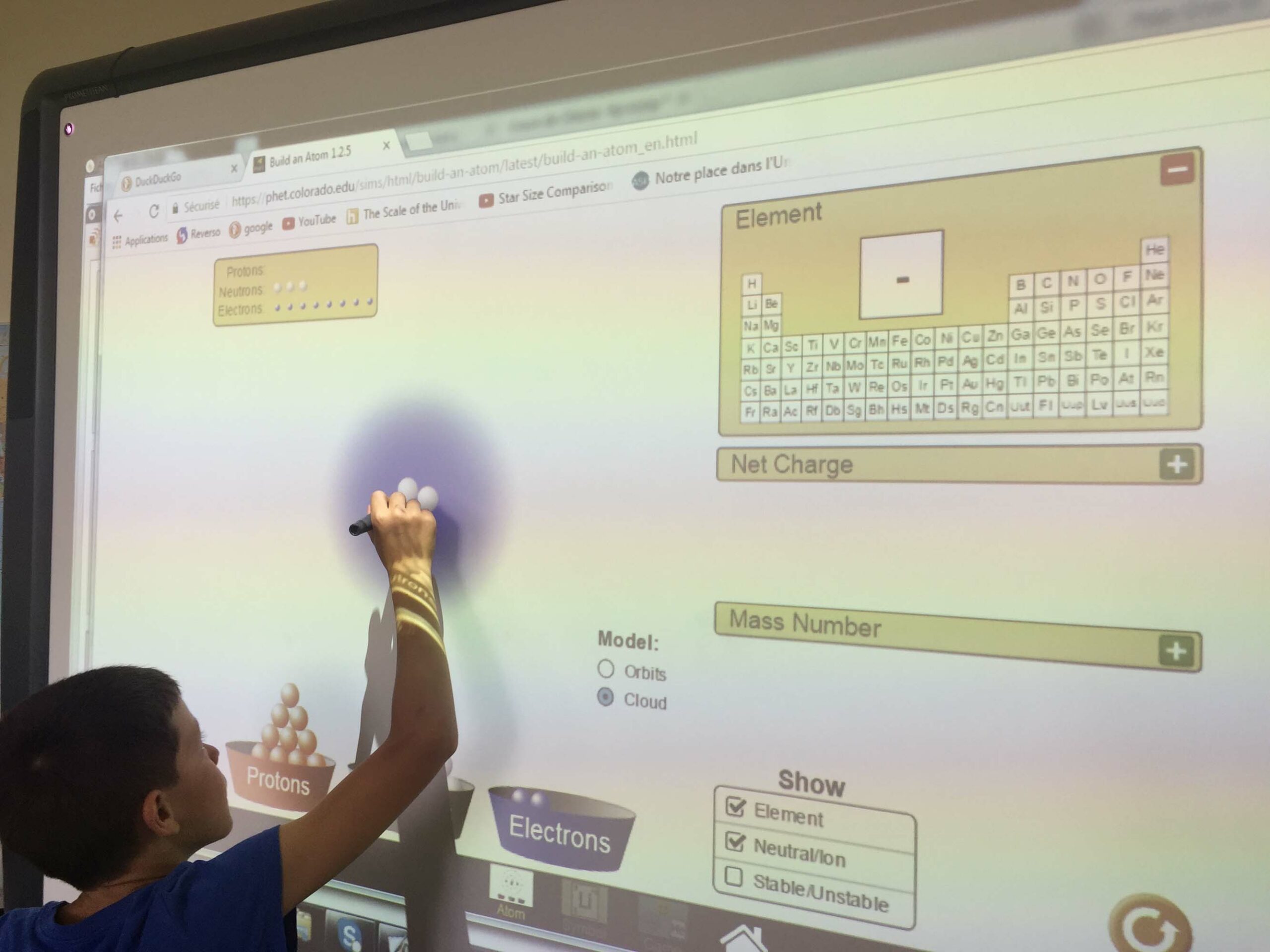
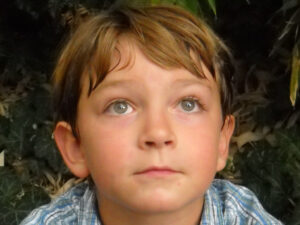
Philosophy for children
The teaching of philosophy ranges from metaphysical and logical questions (Is the universe infinite? What happens while I sleep? How can I make a true deduction with certainty?) to those that concern life in general (Why don’t I have the right to take revenge? What is justice?).
We start with 3P with a year of logic, where children learn to reason formally and abstract reasoning from its content. Classifications, syllogisms and various logical games help prepare them for more complex reasoning.
In 4P, children are introduced to the basics of the theory of knowledge. What can I really know about the world? By what means? How do other animals perceive? Is what I believe true? How do human notions apply to the world?
The 5P classes have an ethics lesson, particularly suited to this pivotal age before adolescence. What is the basis of life in society? What are my rights and obligations? Why are there inequalities? Is violence justifiable? How can conflicts be resolved? What is the basis of respect? How do we understand the Kantian imperative? Can we organise a just society?
Music & Choir
The children have a programme of music history, music theory and choir.
During music lessons, the children explore the world of the orchestra and opera. They listen to major works and learn to recognise the music of different periods. In Solfeggio, they learn to decipher in the treble clef.
The choir helps to prepare Christmas carols and songs for the end-of-year play.
For the Christmas show we explore a more classical repertoire, and for the end-of-year show more playful songs. The children are very proud to present their work, often on several occasions, to family and friends.
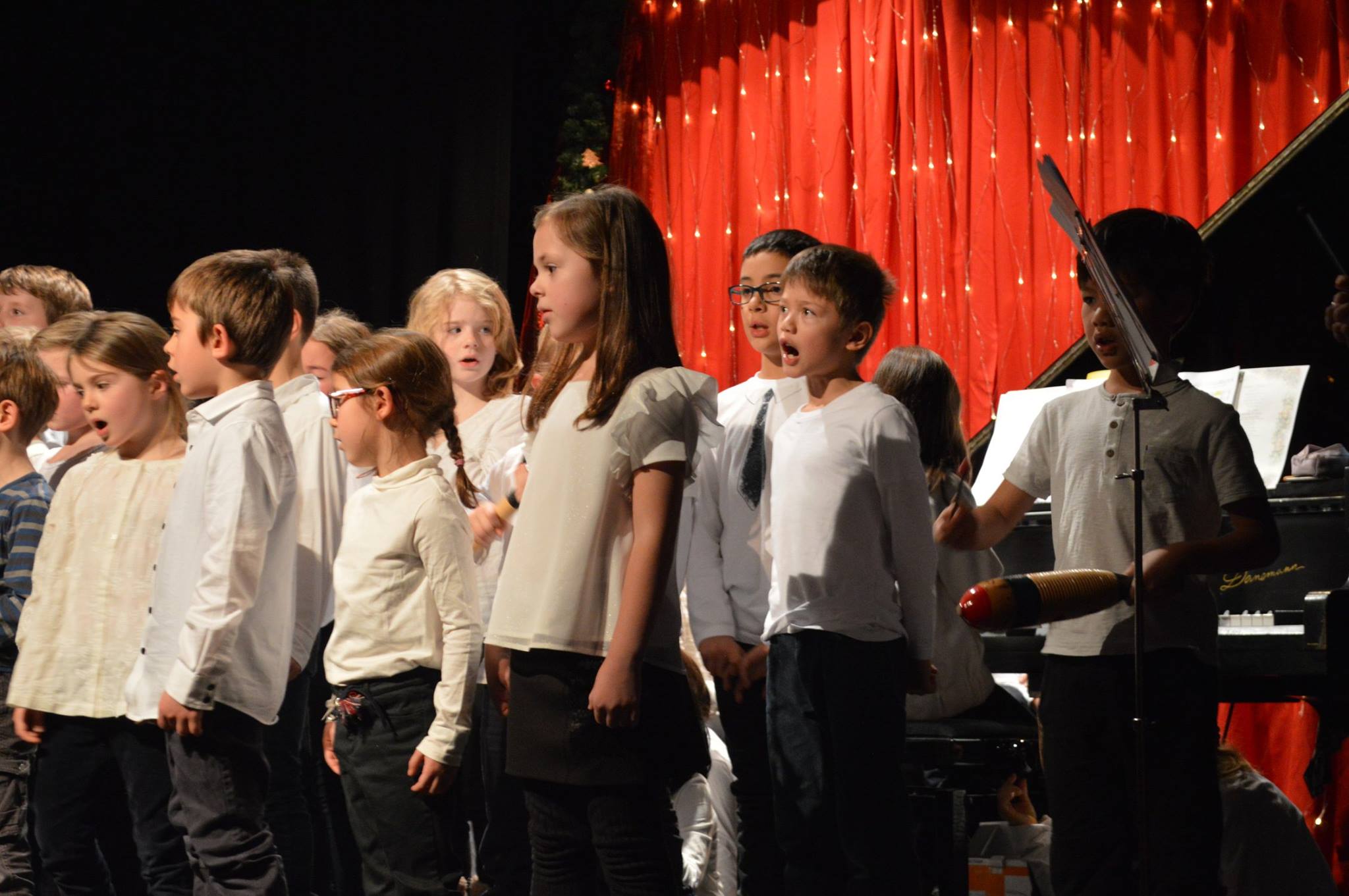
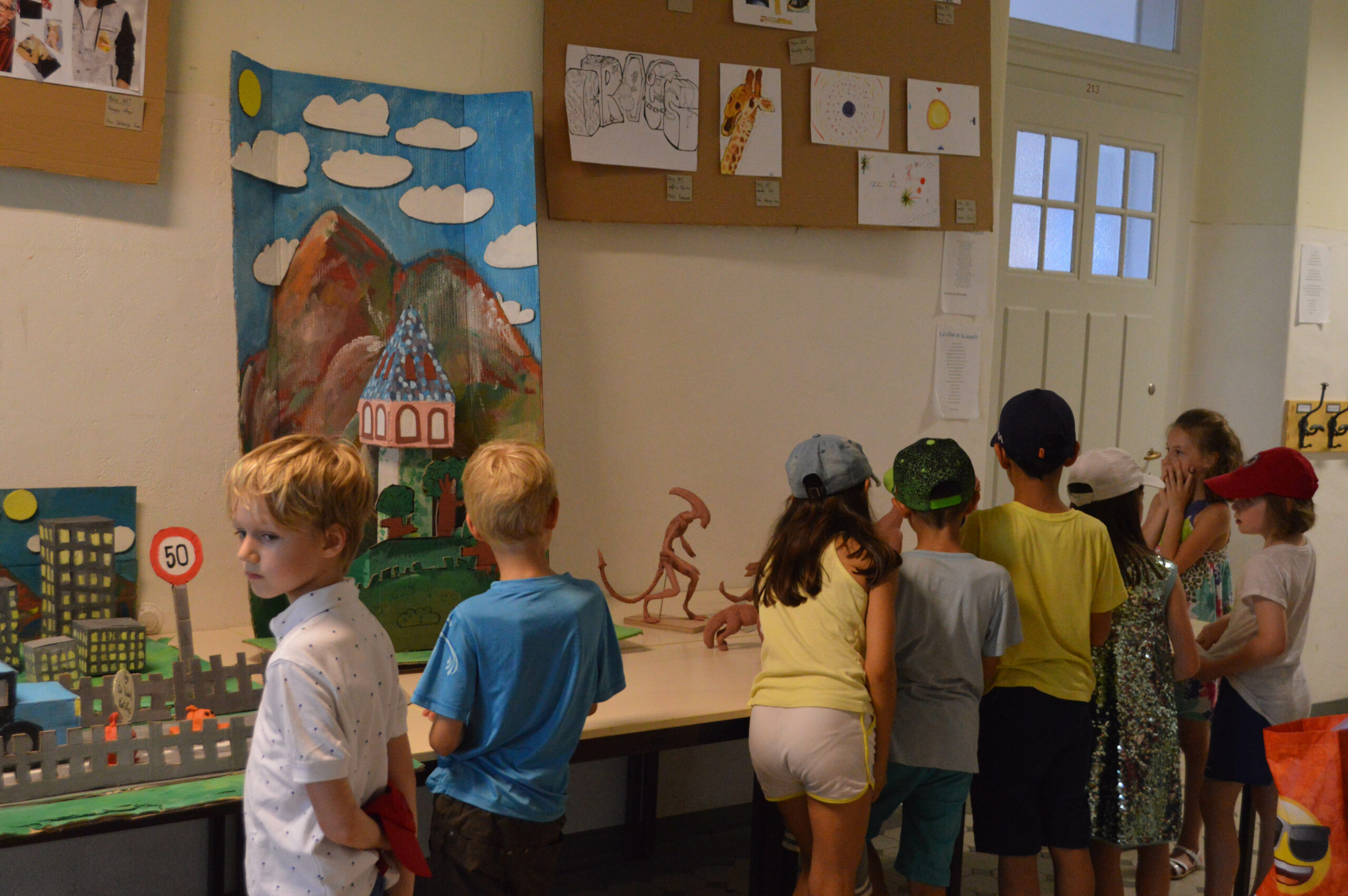
Art
Art lessons, given by a specialist teacher from the start of primary school, enable pupils to master a number of techniques (drawing, charcoal, watercolour, photography, collage, etc.) and develop their imagination and creativity.
Competitions are organised several times a year, enabling those who wish to do so to develop more personal works; and painting and modelling classes are part of the after-school activities for all those who wish.
Shows
Doing your best for the sake of a show… Twice a year our pupils take to the stage: at Christmas for the Christmas choir, and at the end of the year for the famous theatrical performance.
On a theme that changes every year (the countries of the world, Antiquity, the Great Scientific Discoveries, etc.), the primary class teachers invent a bilingual play for their pupils. Often dressed up in costumes, but always enthusiastic, the pupils put their hearts into playing their roles with conviction, in both languages.
It’s always a great moment of sharing and laughter…
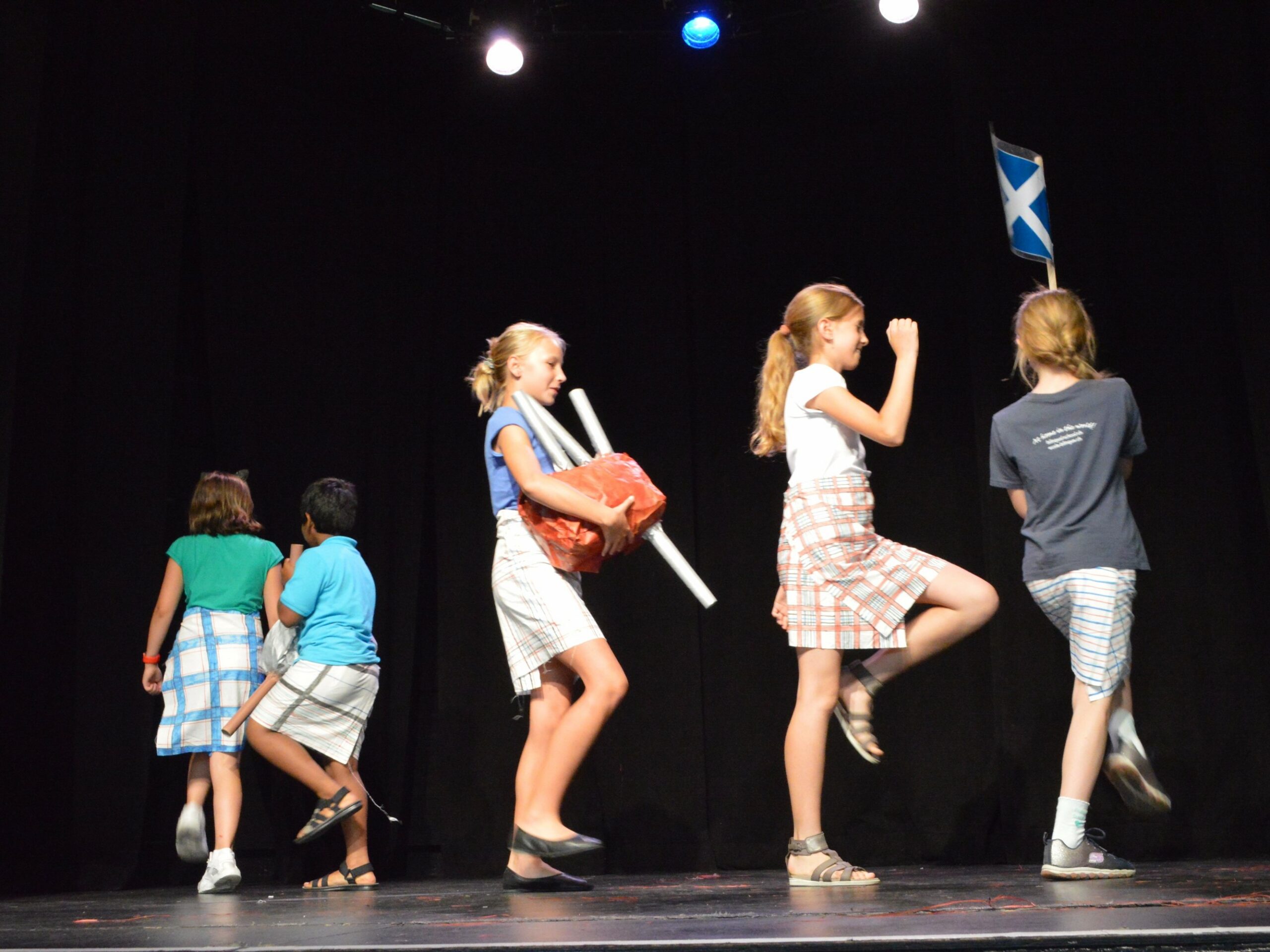
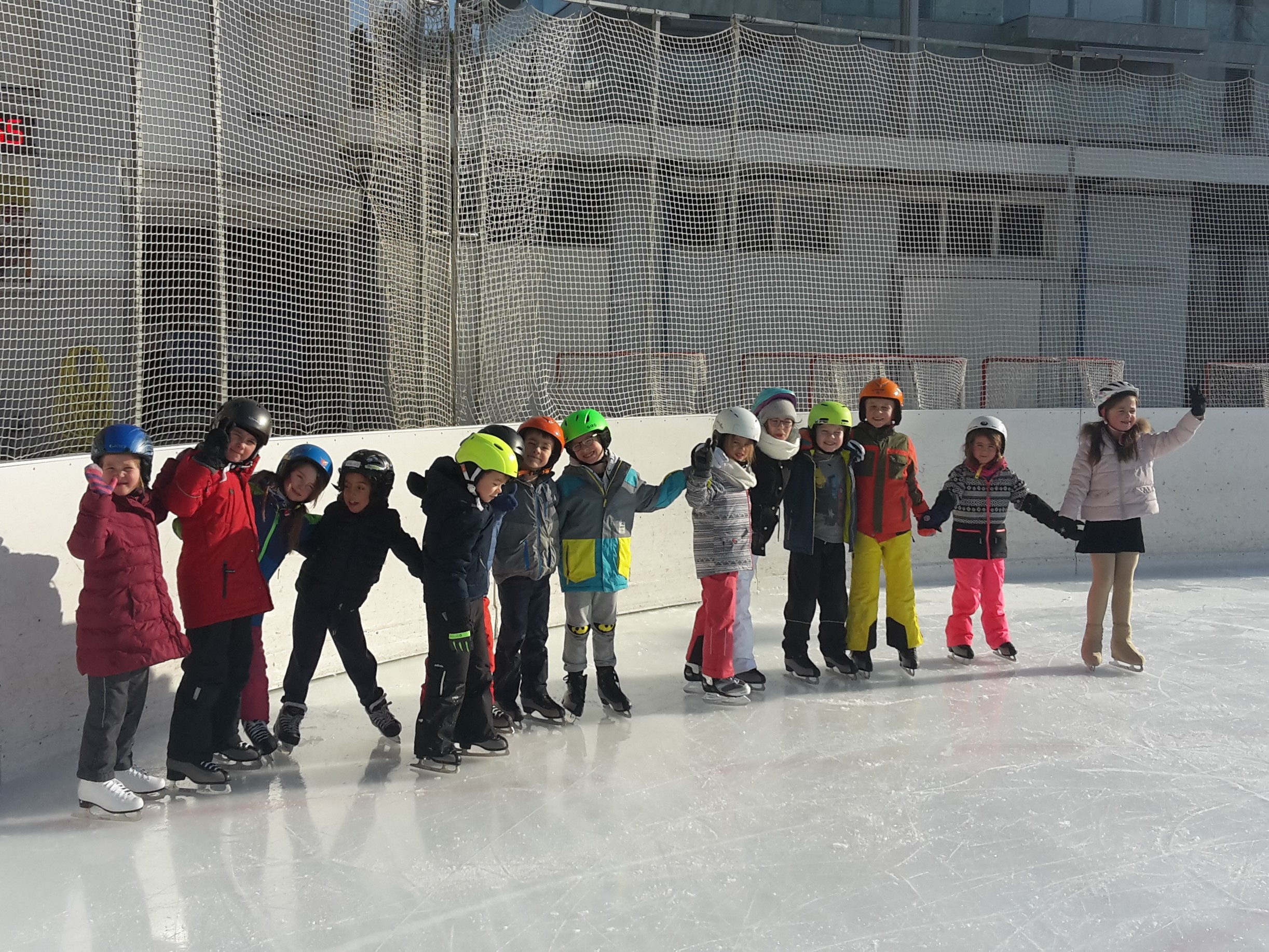
Sport
Our programme aims to develop all-round fitness and enable students to take on all kinds of physical challenges. We give priority to outdoor sport and a variety of activities and discoveries.
In the first primary year, everyone learns to swim safely in the water. The aim is to practise the crawl, breaststroke and backstroke as well as diving; they also complete the CSA (Certificat de Sécurité Aquatique). From 2nd primary onwards, swimming is complemented by a whole range of other activities, including running in the forest, athletics by the lake, ice-skating at Montchoisi and other activities on our sports field.
Sports Games
We organise sports games twice a year, based on athletics or uni-hockey. Our teams are made up of students of all ages, and each has a captain who is chosen from among the final-year students (9S).
The captain is responsible not only for his or her morning team (students from Secondary School and older primary classes), but also for the afternoon team (young primary pupils). As a result, the team’s results are not known until the very end of the day, and a great sense of cohesion is established between the older students, who look after and coach their younger companions.
It’s an opportunity for the students to assess their own skills and take part in a group competition. For the primary pupils, it’s also a chance to work closely together for the success of their team and to put their skills to practice.
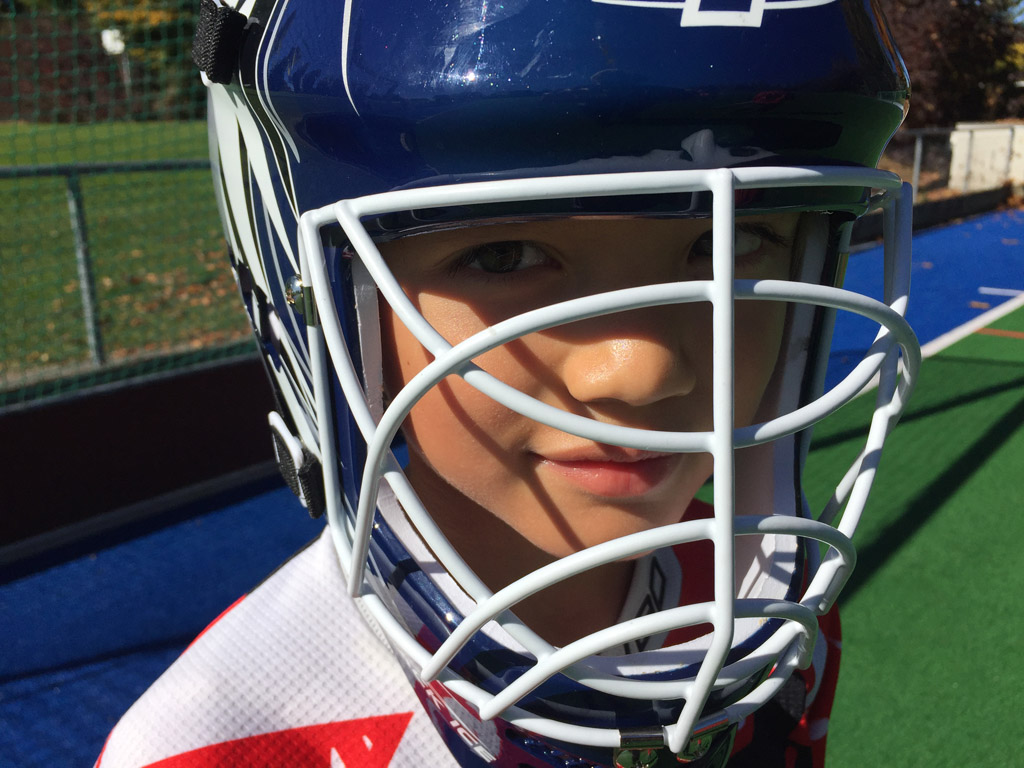
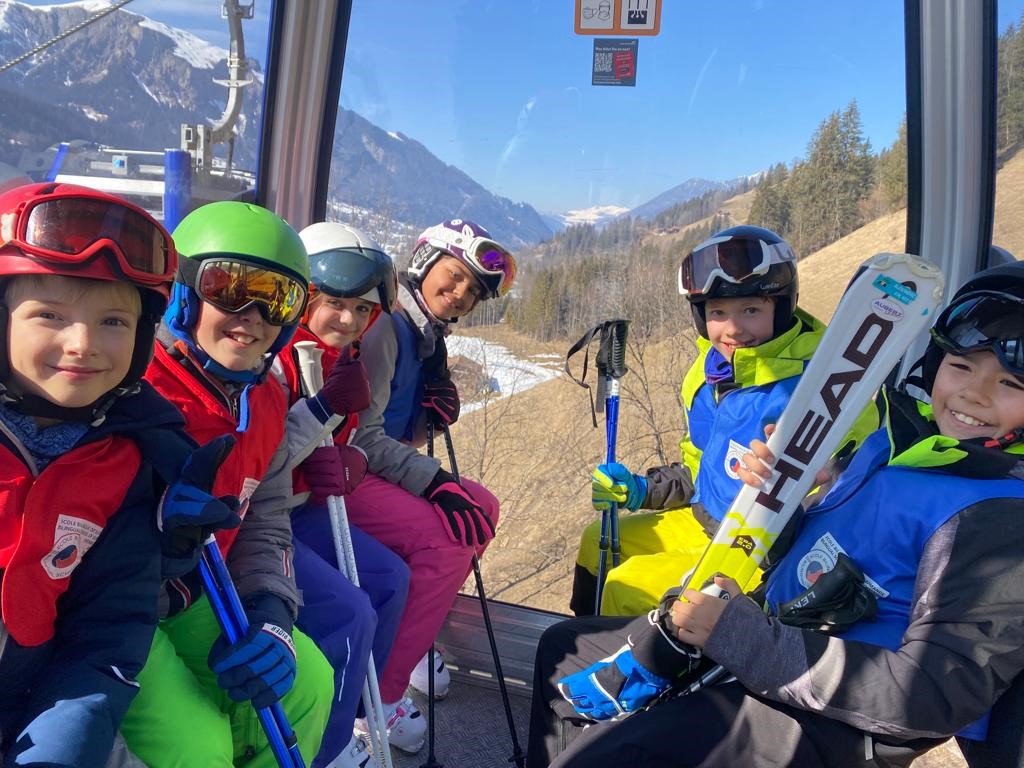
Ski camp
A real ski camp is a memorable affair. It’s obviously an opportunity to make some serious progress on skis – we organise our own groups and instructors to ensure that everyone has the chance to develop and improve their skills.
But it’s also about adventure and growth, taking responsibility and tackling problems, having a laugh with your mates, learning new card games, losing and finding your socks or mask, almost missing the bus, coming home exhausted after a day in the deep snow, having a good shower and slipping into the feathers, and, the icing on the cake, the inevitable and hilarious ‘disco’ on the last night!
Sailing camp
Living by the beautiful lake Léman is the perfect opportunity to learn to sail.
At the end of the year, a week is devoted to sailing at the Club de voile de Pully, which has been organising our camps for years. Our young students start out in an Optimist, but also take a trip on other dinghies or ballasted boats. They learn to balance on the hull, to feel where the wind is coming from, and to position the sails and helm.
Every year, several students decide to extend the experience with the Club de Pully.
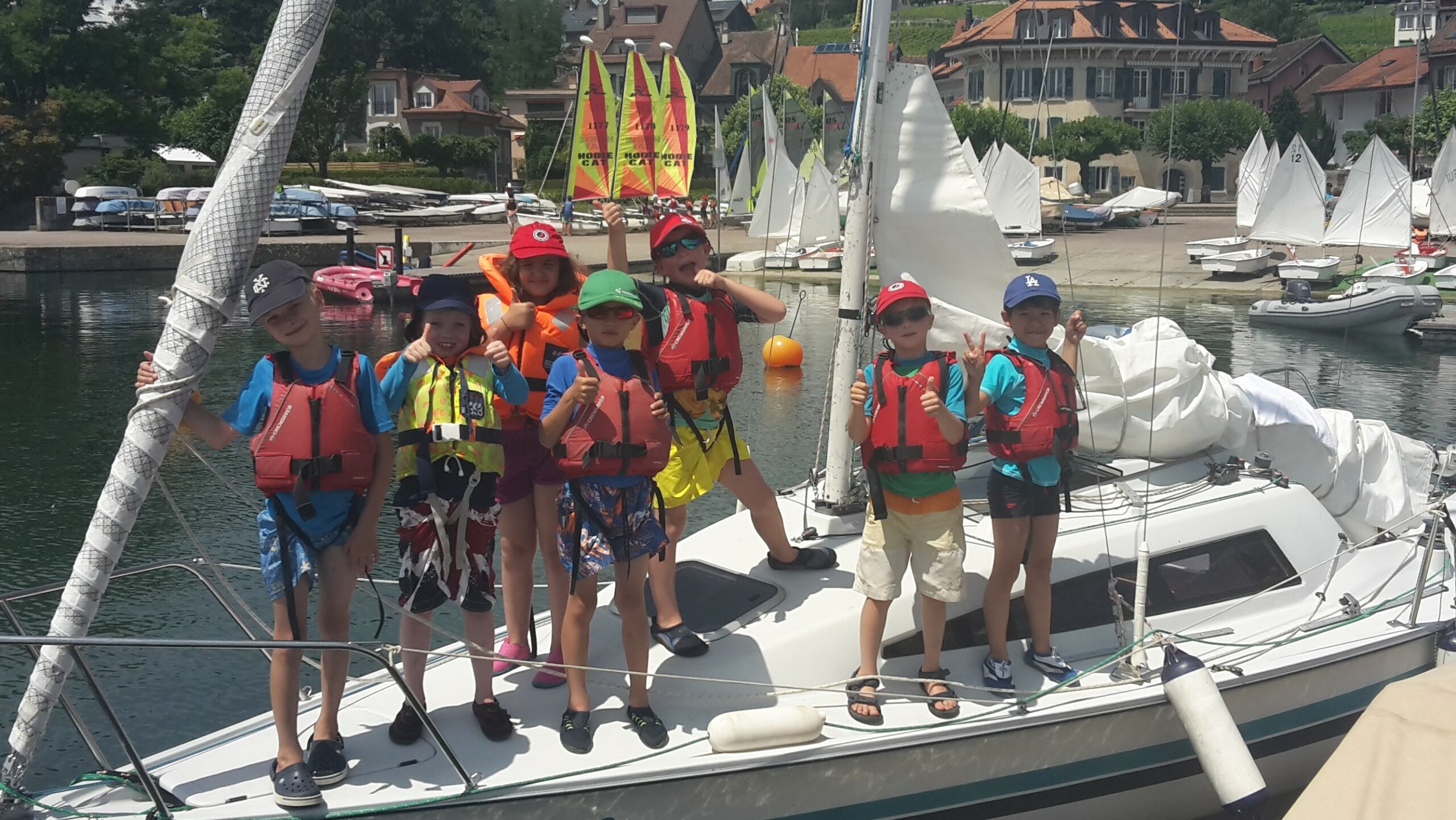
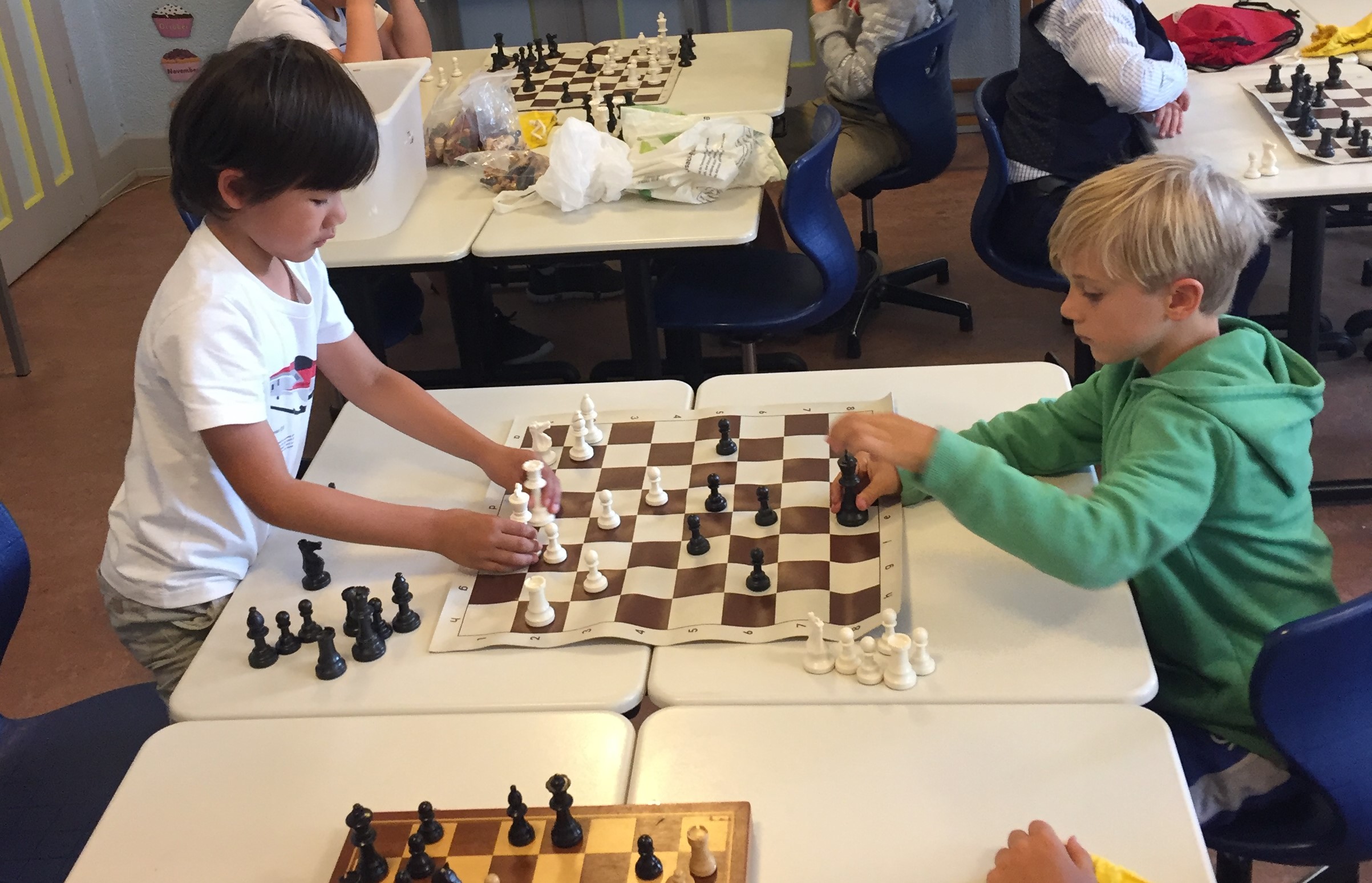
After-school activities – it’s over here!
Music, Chess Club, Swimming, Sewing, Modeling, Painting… just leaf through the catalog to find what suits those who stay after school, it’s over here!
